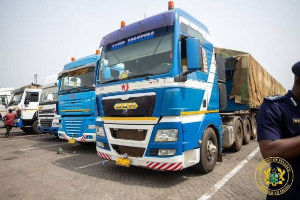Barely four years ago, the country was facing a debilitating power crisis with businesses practically on their knees.
Through a collaboration between multiple stakeholders such as the independent power producers, the problem was largely resolved.
But dealing with a problem of such magnitude was bound to be costly and rightly so with the IPPs needing to be paid for services rendered.
Given the widespread inefficiencies in the power sector, it is emerging that debt is fast accruing to these private power generators.
Over the past few years, there has been a tussle between the IPPs and government overpayment for power generated — the cost of which runs into several billions of Ghana cedis.
According to the Chamber of Independent Power Producers, Distributors and Bulk Consumers (CIPDiB), the umbrella group of these players, government only recently paid the power producers only 40 percent of power invoices on a monthly basis, a situation they describe as inadequate to sustain their operations.
The chamber said members have had to resort to loans to keep their operations going. It added, however, that theirdebt service obligations have also become unsustainable,hence their demand for prompt payment of overdue invoices to the tune of US$1.44bn as at September this year.
The chamber last week notified the Ghana GridCompany (GRIDCo) and other power utilities of theplanned shutdown of IPPs’ plants until government clears 80 percent of the debt owed.
“This is against the backdrop of the recent US$1bn Eurobond issue which we expected to be used to pay these outstanding invoices. The chamber has been agitating for the payment of these outstanding invoices for some time now. It is lack of tangible progress by way of payment which compels us to have to inform the public of the increasing difficulty in our members keeping the lights on,” the chamber president, ElikplimKwabla Apetorgbor, said.
While the government has said it pays US$500m every year for electricity it does not use, because of excess power contracted from IPPs on take-or-pay terms, it is instructive that government does everything within its power to settle its obligations.
This paper believes that there is a need for government to constantly be at the table to discuss any challenges in order to forestall the country slipping into darkness.
Business News of Monday, 23 November 2020
Source: thebusiness24online.net
Business24 Editorial: Deal with IPPs hangover
Entertainment












